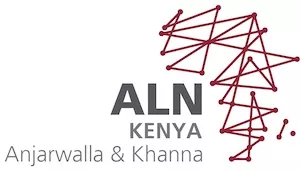- in United States
- within Antitrust/Competition Law, Technology and Transport topic(s)
- with readers working within the Utilities industries
The High Court delivered this judgment recently in relation to a petition brought by key representatives of the Association of Gaming Operators of Kenya (AGOK).
The Petition sought to challenge the amendments introduced to the Excise Duty Act, 2015 (the EDA) which is contained within the Finance Act, 2021 (the FA). These amendments introduced excise duty on betting, gaming, price competitions and lotteries as well as raising the tax to 30% and apportioning it at 7.5% across each of the four activities.
The amendment came into operation on 1 July 2021 and to that end, the Kenya Revenue Authority, (the KRA) was writing to various casino operators requiring the filing of returns and payment of the excise duty.
Facts
The Finance Bill, 2021 (the Bill) was published for public
participation on 29 May 2021 and stakeholders had been invited to
provide comments through a letter dated 26 May 2021. The Bill had
proposed to introduce excise duty at the rate of 20% on betting
activities. The period for obtaining comments from members of the
public closed on 2 June 2021.
The Bill was presented for a 2nd Reading on 22 and 23 June 2021 and for a 3rd Reading on 24 June 2021, where it was passed and then assented to by the President on 29 June 2021. Among the amendments during the 2nd Reading was the introduction of two new paragraphs to Part II of the First Schedule to the EDA that would charge excise duty at the rate of 7.5% on gaming and lotteries.
The Petitioners argued that the introduction of excise duty on gaming and lotteries was not subjected to public participation as it was introduced as an amendment during the 2nd Reading by the National Assembly, outside the period provided for comments from members of the public.
Other arguments raised by the Petitioners were that:
a) gaming and lotteries were not an excisable good nor was any
service being provided. As such no excise duty could be
levied;
b) the excise duty proposed was too high and would drive investors
out of the market as the gaming and lotteries industry was already
highly taxed;
c) the entire process was undertaken in contradiction to the Public
Finance Management Act, 2012 which requires the National Assembly
to consider the principles of equity, ease of collection, its
impact on development, investment, and other factors.
The Petitioners, therefore, prayed that the excise duty amendment is declared unconstitutional.
The Attorney General opposed the Petition on the main ground that the National Government has the power to impose tax, including excise duty. As to whether gaming and lotteries were excisable services, KRA submitted that they were defined as such the moment the amendment introduced gaming and lotteries to the EDA. They believed that once a company enabled a person to place a wager, a service was provided.
The National Assembly submitted that it made adverts on print media requesting for comments from members of the public and relevant stakeholders and further organised meetings on the same. According to the National Assembly, public participation did not mean that each individual's view would be taken into account. The introduction of the rate of 7.5% from 20% was to divide excise duty on all transactions including gaming and lotteries.
High Court Analysis
The High Court observed that the Bill as initially published, had
proposed to introduce excise duty on betting on the amount wagered
or staked and this made its way to the FA, although at 7.5% as
opposed to the initial proposal of 20%. However, taxation on gaming
and lotteries was not included in the Bill, and neither were there
any discussions in the record of public engagements in this regard.
The first time the provision to tax gaming and lotteries appeared
was in the FA.
The High Court analysed that the decision to introduce an
amendment after public participation was an administrative action
that affected the legal rights and interests of the Petitioners,
among members of the public. As such it had to pass the
constitutional and statutory tests of lawfulness, reasonableness
and procedural fairness. In the High Court's view, the National
Assembly was required to:
a) give notice of the intended amendments to the Petitioners and
the public at large;
b) afford an opportunity to the Petitioners and the public to be
heard on the question; and
c) give reasons for the decisions made.
Since none of the above took place, the High Court held that the amendment was unconstitutional for failure to undertake any form of public participation, stakeholders' engagement, and fair administrative procedures.
Conclusion
The effect of this decision is that at present, excise duty at 7.5%
is not applicable to gaming and lotteries, subject to the KRA
obtaining orders from the High Court to stay the decision or a
decision by the Court of Appeal overturning the High Court's
decision. It remains to be seen whether the KRA will appeal the
High Court's decision at the Court of Appeal and whether an
application for a stay will be made.
The content of this article is intended to provide a general guide to the subject matter. Specialist advice should be sought about your specific circumstances.



